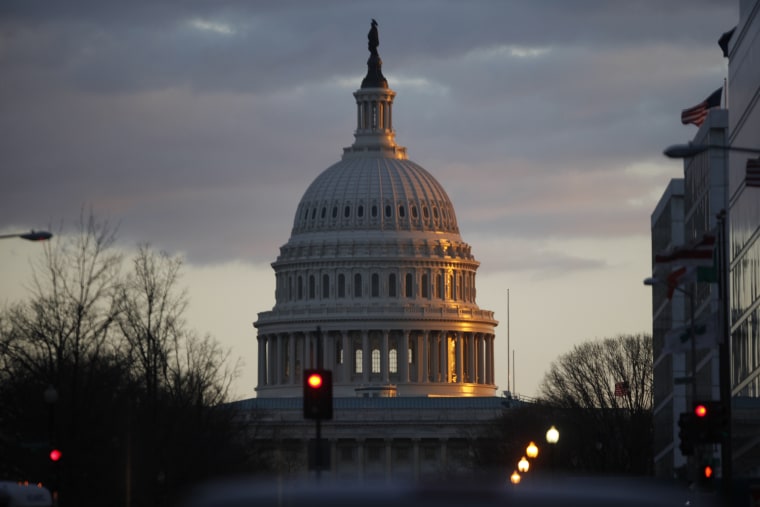Sen. Shelley Moore Capito (R-W.Va.) boasted yesterday that the goals of the Republican Party's tax plan "are shared by many Americans." I'm not sure which polling data the West Virginia senator is reading, but before GOP policymakers radically overhaul the nation's finances, they may want to consider the actual attitudes of the American mainstream.
Take, for example, a national Quinnipiac poll released yesterday.
American voters disapprove 52 - 25 percent of the Republican tax plan.... The wealthy would mainly benefit from this tax plan, 61 percent of American voters say, while 24 percent say the middle class will mainly benefit and 6 percent say low-income people would mainly benefit.American voters say 59 - 33 percent that the Republican tax plan favors the rich at the expense of the middle class. [...]Only 36 percent of voters believe the GOP tax plan will lead to an increase in jobs and economic growth, while 52 percent do not believe it.
One of the most striking tidbits from the data was that only 33% of Republican voters said they expect their own party's plan to give them a tax break -- suggesting GOP policymakers haven't even convinced their supporters about the benefits of their tax pitch.
And while I'll gladly concede that it's unwise to overreact to any one set of results, these results are bolstered by nearly identical findings from poll after poll after poll after poll after poll.
What's more, as Rachel noted on last night's show, the Quinnipiac survey was conducted before Senate Republicans altered their tax plan to include a health care change that would push 13 million Americans into the ranks of the uninsured.
Remember, Republicans have convinced themselves that the key to their success – not just as a matter of policy, but in purely electoral terms – is passing massive tax breaks. They’ve come to believe this with absolute certainty, insisting publicly that they believe their party will be politically “dead” unless they pass the still-unwritten tax plan. It’s become “an existential issue” for GOP leaders.
This is a bizarre dynamic because Republicans are trying to become popular by doing something unpopular. GOP officials are working from the assumption that if they ignore popular will, they’ll be rewarded by the voters whose wishes they’re ignoring.
At the Washington Post yesterday, Paul Waldman offered a striking overview of where things stand:
* The Republican tax bill raises taxes on somewhere between 16 million (Senate version) and 47 million (House version) American households; the difference is mostly because the Senate bill doesn’t get rid of as many deductions as the House bill.* Most of the benefits of the tax bill go to the wealthy and corporations.* It may raise taxes on people with large medical expenses, and parents who adopt children, and people with student loans, and graduate students (these provisions are in the House bill, which ends these deductions, but not the Senate bill).* It raises taxes on people who live in states with significant state and local taxes, because it does away with this deduction (in both versions).* Because it eliminates personal exemptions, it raises taxes on many families with multiple children (in both versions).* It will increase insurance premiums and lead to 13 million fewer Americans with health coverage.* It could trigger a $25 billion cut to Medicare because of existing budget rules.
The attack ads will write themselves, and every word will be true.
Note to Republicans who are at all concerned about re-election: how sure are you that voting for a plan with 25% approval will help your standing?
